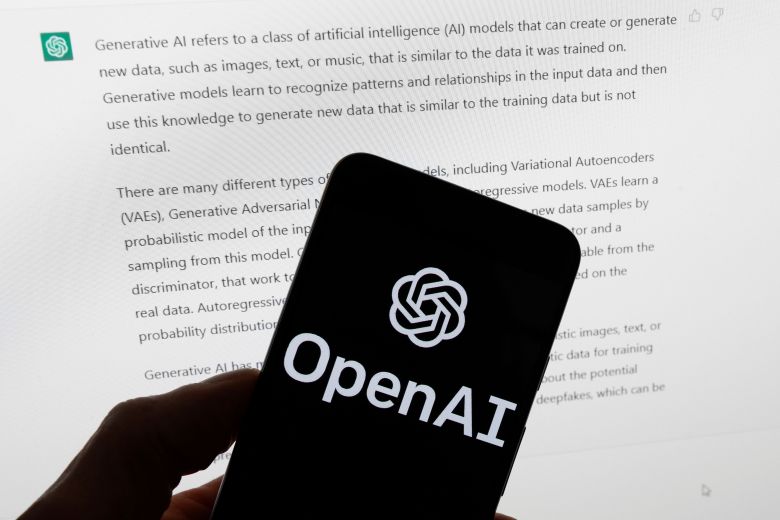Lawmakers in California, which is home to the most cutting-edge AI developers, are worried that Congress is ill-equipped to handle a labor market in which AI replaces entry-level positions in the technology industry.
Although it’s unclear how frequently AI will replace entry-level positions, certain early indicators, such as an Oxford Economic Research, point to a reduction in entry-level IT jobs. Lawmakers who are witnessing this unfold in their own communities are now cautioning that many of the jobs for which graduates were prepared would soon be replaced by AI.
Bay Area Democrat Rep. Sam Liccardo told NOTUS, “We’re incredibly unprepared to respond to this issue.” I don’t believe Congress is paying much attention to this existential issue facing our civilization outside of a dozen of us.
According to Liccardo, the loss of highly skilled personnel is one of his main worries.
The federal government is quite interested in artificial intelligence. In their reconciliation package, congressional Republicans recently approved funding to support the adoption of AI technology in the fields of defense, energy, and border security. Additionally, the Trump administration has attempted to incorporate AI into the executive branch. However, Congress has had difficulty regulating AI and other developing technology.
The occupations we encourage students to pursue are frequently the ones that AI is destroying the fastest. What people are genuinely learning and what the labor market requires are completely at odds. Rep. Josh Harder, a Democrat from California, told NOTUS that the rapid advancement of AI is making it worse.
We’ve held a few hearings, but in the end, Congress acts far too slowly, which is usually fine on some issues. However, AI is developing so quickly that if we’re too slow on this, we’ll be left holding the bag, Harder added.
From over 64,000 in 2015 to over 120,000 in 2024, the number of computer science graduates has nearly doubled in the past ten years. Graduates in this discipline are joining the workforce at one of the fastest rates.
According to Mark Muro, senior scholar at Brookings Metro, there is reason to think that artificial intelligence (AI) is changing the landscape as more individuals enter the tech industry, even as things like President Donald Trump’s tariffs may be causing a decline in entry-level jobs in that area.
Muro stated in a text that hiring for entry-level programming positions has stalled, particularly in the computer industry. The emergence of generative AI tools and executives’ statements that companies are leaning into AI coincide with the slowdown in the past year.
Examples of executives discussing or actively implementing AI in their workforces are easily found. Additionally, some of these businesses have stated that they want to use AI to automate operations in an effort to minimize their staff.
In an email earlier this year, Duolingo CEO Luis von Ahn stated, “We’ll gradually stop using contractors to do work that AI can handle,” according to The Verge.
Others openly discuss how a sizable portion of entry-level and white-collar jobs may be replaced by AI.
According to right-wing journalist and Trump adviser Steve Bannon, who told Axios earlier this year, “I don’t think anyone is taking into consideration how administrative, managerial, and tech jobs for people under 30 are going to be eviscerated.” These are entry-level occupations that are so vital in your 20s.
Even legislators who express urgent concern about this transformation in the labor market, however, emphasize that they still require a deeper comprehension of how AI will impact the IT industry.
First and foremost, we must determine if AI will result in a declining workforce or an equal number of workers performing various tasks. Rep. Ami Bera of California said to NOTUS, “I don’t know the answer to that.”
Get neighborhood news in your inbox. It’s free and enlightening.
Become one of the 20,000+ individuals who receive breaking news alerts and the Times of San Diego in their inbox every day at 8 a.m.
Weekly updates from San Diego communities have also been provided! You acknowledge and agree to the terms by clicking “Sign Up.” Choose from the options below.
According to Bera, the true danger is that AI will handle a large portion of the code. I do believe there is a valid case that AI might replace a large portion of that workforce, as we currently have a generation that has been inspired to learn how to code.
Congress should first invest in training programs that would assist workers in adjusting to new roles, according to lawmakers considering how to address this dilemma.
Additional suggestions made in discussions with NOTUS included encouraging more workers to pursue careers in electronics manufacturing and forming public-private partnerships to assist educational institutions in swiftly adjusting to the demands of a shifting labor market.
Many manufacturing jobs were mechanized or outsourced in the 1980s. California Representative George Whitesides, a former NASA chief of staff and CEO of Virgin Galactic, told NOTUS that AI might be able to achieve the same things for today’s white-collar employment.
According to Whitesides, we must ensure that we are creating a future in which people can feel optimistic about their financial circumstances.This story was created in collaboration with NEWSWELL, the home of the Times of San Diego, Santa Barbara News-Press, and Stocktonia, and NOTUS, a publication of the nonprofit, nonpartisan All Britton Journalism Institute.

 by
by 